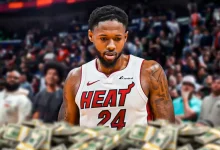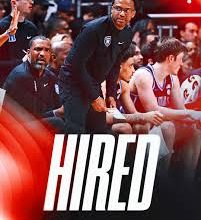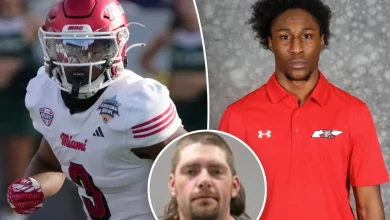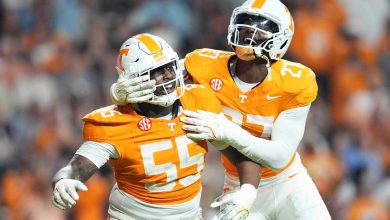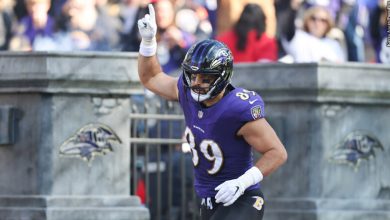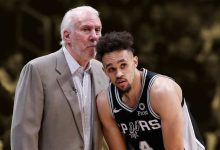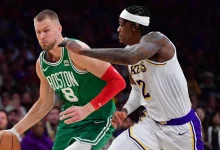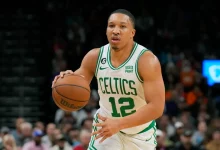As of 2024, Miami only has one defensive coach left on staff.
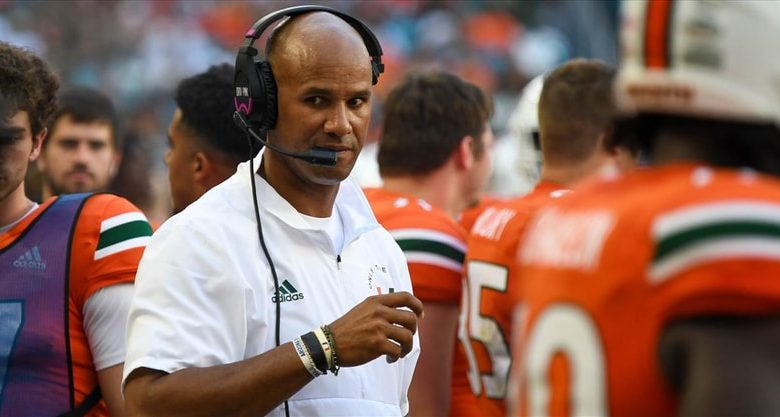
Miami Hurricanes: A Look at the Current State of the Defensive Coaching Staff in 2024
As of 2024, the Miami Hurricanes football program, under head coach Mario Cristobal, finds itself in a unique position. The team is in the midst of rebuilding and regaining its former glory, but the defensive coaching staff has seen significant turnover. Miami has long been a team known for its fast, physical defense that has produced countless NFL talents. However, in recent years, the Hurricanes’ defense has struggled to return to its former dominant form, leading to substantial changes in the coaching staff.
By 2024, the Hurricanes find themselves with only one defensive coach left on staff, a situation that raises several questions. What led to this dramatic turnover? How has this impacted the defense? And what steps are being taken to ensure that Miami’s defense can regain its feared reputation? In this article, we will take a deep dive into the defensive coaching changes at Miami, the implications of having just one defensive coach on staff, and what the future holds for the Hurricanes’ defense.
The Miami Hurricanes Defense: A Program Tradition of Excellence
The Miami Hurricanes have long been a powerhouse on defense, with a storied tradition that includes a roster of legendary players such as Ray Lewis, Ed Reed, Warren Sapp, and Vince Wilfork, to name just a few. The Hurricanes were renowned for their aggressive, swarming defense, often referred to as a “Hurricane defense,” where speed, physicality, and a relentless pass rush were the cornerstones of the program’s success.
Miami’s defensive philosophy under previous coaches like Butch Davis and Larry Coker centered around creating havoc on the field, forcing turnovers, and playing an attacking style that shut down opposing offenses. This identity was a critical part of their national championships in the 1980s and 2000s, and it helped keep Miami relevant as one of the top programs in the country for decades.
However, as the program entered the 2010s and beyond, the Hurricanes began to experience more inconsistency on the defensive side of the ball. Under head coaches like Al Golden and Mark Richt, Miami’s defense faltered at times, leading to a more reactive approach than the aggressive and physical style that had once defined the team. Defensive struggles became a theme, and these shortcomings eventually led to coaching changes, including the hiring of Mario Cristobal in 2021.
The Rise and Fall of Miami’s Defensive Coaching Staff
When Mario Cristobal was hired as head coach in 2021, there were high hopes for the program’s resurgence, particularly on the defensive side of the ball. Cristobal, a former offensive lineman and a Miami native, was expected to revitalize the program and restore Miami’s proud tradition. His background as a recruiter and program builder, especially his success at Oregon, made him an appealing choice to lead the Hurricanes back to national prominence.
One of the major changes Cristobal made was hiring a defensive staff that he believed would restore Miami’s elite defensive status. To that end, he brought in several coaches with strong reputations and experience. One of the key hires was Kevin Steele, a veteran defensive coordinator with experience at programs like Auburn and Alabama, who was brought in to help Miami reclaim its feared defensive reputation.
Steele, known for his aggressive defensive schemes and ability to develop talent, was expected to have an immediate impact on Miami’s defense. However, the results were mixed during the 2022 and 2023 seasons. While the defense showed flashes of improvement, it struggled with consistency, particularly in critical games. The lack of a consistent pass rush, lapses in coverage, and inability to stop the run led to growing concerns about the defense’s effectiveness.
The Departure of Defensive Coaches
The most significant change to Miami’s defensive staff came in 2024, when a mass exodus occurred. Kevin Steele, who had served as the Hurricanes’ defensive coordinator for two seasons, was one of the first departures. Steele’s decision to leave Miami shocked many, as he was a seasoned and well-respected coach, but it also signaled a major shift in the team’s defensive philosophy. Steele had worked to implement his version of a 4-3 defense, which was a departure from the aggressive 4-3 and 3-4 hybrid systems that had defined Miami’s defenses in the past.
Along with Steele, several other defensive assistants followed suit and left the program. As a result, by 2024, Miami was left with a drastically reduced defensive staff, with only one defensive coach remaining on the payroll. This departure of key defensive coaches leaves a considerable hole, raising important questions about the future direction of the defense.
Impact of Having Only One Defensive Coach
Having only one defensive coach on staff in 2024 is a highly unusual situation for a major college football program, especially one with the aspirations of Miami. Typically, college football teams have a defensive coordinator and a host of position coaches to oversee various aspects of the defense. These position coaches are responsible for developing players at specific positions, whether it be defensive line, linebackers, cornerbacks, or safeties.
In Miami’s case, the decision to retain only one defensive coach raises concerns about the team’s ability to effectively develop its defensive players and implement a cohesive defensive system. Without a full staff of specialized coaches, the remaining coach will be tasked with a tremendous amount of responsibility, and this could place a significant strain on the program’s defense. Furthermore, it is likely that Miami will need to make rapid changes in order to address the gaps in its coaching staff.
The Need for Change: Addressing Miami’s Defensive Struggles
Despite Miami’s storied history on defense, the team has struggled to regain that dominance in recent years. The departure of multiple defensive coaches in 2024 underscores a larger issue: Miami’s defense has not lived up to expectations since Cristobal’s arrival. In addition to coaching turnover, the program has struggled with inconsistency in recruiting, player development, and in-game execution.
Key areas of concern include:
- Inconsistent Pass Rush: Miami has struggled to generate a consistent pass rush over the past several seasons, despite having talented players. The lack of pressure on opposing quarterbacks has allowed opposing offenses to gain significant yardage, particularly on third downs.
- Poor Run Defense: Another area of concern for the Hurricanes has been their ability to stop the run. Miami has often been outmuscled by physical running backs and offensive lines, allowing opponents to sustain long drives and control the tempo of the game.
- Secondary Play: While Miami has produced some standout defensive backs in recent years, the secondary has been prone to lapses in coverage, particularly in high-pressure situations. The defense has struggled to shut down explosive passing attacks, leading to big plays and touchdowns.
- Recruiting Shortcomings: Although Cristobal has recruited well overall, the Hurricanes have not always been able to secure the elite defensive talent needed to maintain a dominant defense. Recruiting players who can contribute immediately and develop over time is crucial for Miami to compete at a national level.
The Road Ahead: What Miami Must Do to Fix the Defense
The Hurricanes’ defense in 2024 is at a crossroads, and the situation of having only one defensive coach presents both challenges and opportunities. Miami needs to take immediate action to address the coaching deficiencies and put together a staff that can develop the players necessary to restore the program’s defensive identity. Here are several key steps that need to be taken:
- Hire a New Defensive Coordinator: The first and most important step is for Miami to hire a new defensive coordinator who can implement a system that fits the program’s personnel. This coordinator must bring experience and a strong track record of success at the collegiate level. Ideally, the new coordinator will also be someone who can effectively recruit top-tier defensive talent and establish a cohesive defensive philosophy.
- Expand the Defensive Coaching Staff: With only one defensive coach on staff, Miami must work quickly to hire additional position coaches who can develop talent at each defensive position. This will ensure that Miami can effectively address the individual needs of players on the defensive line, at linebacker, and in the secondary.
- Focus on Recruiting Elite Defensive Talent: Miami must continue to prioritize recruiting top defensive players, particularly in Florida, which remains one of the nation’s most fertile grounds for defensive talent. Cristobal and his staff must capitalize on local recruiting and bring in the type of defensive players who can make an immediate impact.
- Develop a Strong Defensive Identity: Miami’s defense needs to regain its aggressive, playmaking identity. The Hurricanes must focus on generating pressure, stopping the run, and forcing turnovers. By restoring the aggressive style of defense that defined Miami’s past successes, the program can re-establish itself as a top-tier defensive unit in college football.

